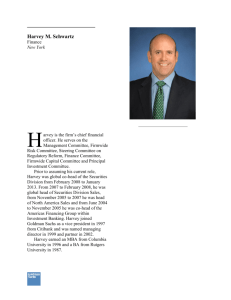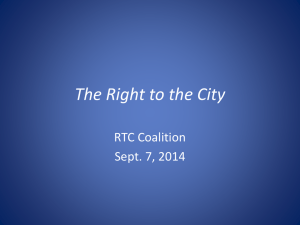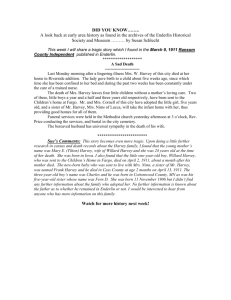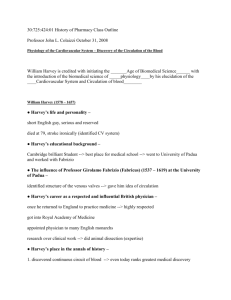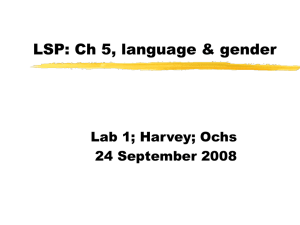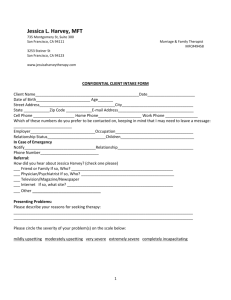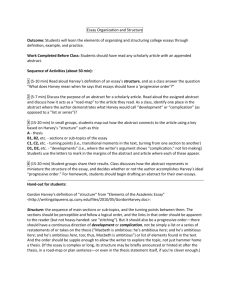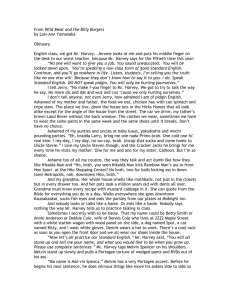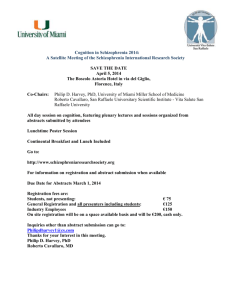Reading 1
advertisement
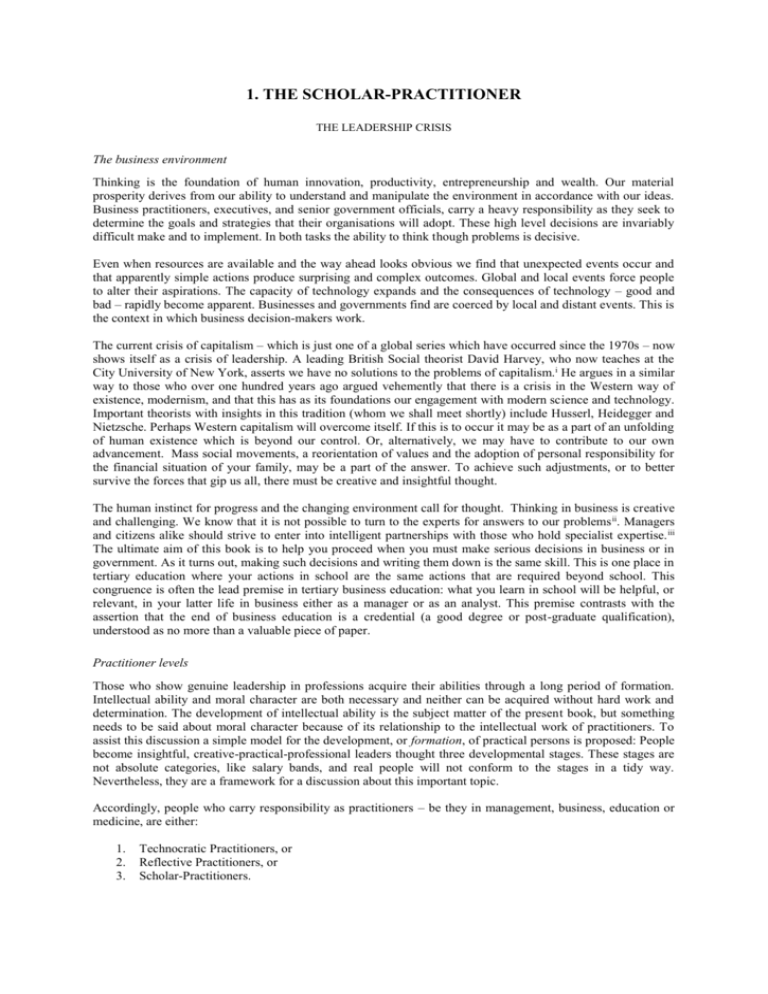
1. THE SCHOLAR-PRACTITIONER THE LEADERSHIP CRISIS The business environment Thinking is the foundation of human innovation, productivity, entrepreneurship and wealth. Our material prosperity derives from our ability to understand and manipulate the environment in accordance with our ideas. Business practitioners, executives, and senior government officials, carry a heavy responsibility as they seek to determine the goals and strategies that their organisations will adopt. These high level decisions are invariably difficult make and to implement. In both tasks the ability to think though problems is decisive. Even when resources are available and the way ahead looks obvious we find that unexpected events occur and that apparently simple actions produce surprising and complex outcomes. Global and local events force people to alter their aspirations. The capacity of technology expands and the consequences of technology – good and bad – rapidly become apparent. Businesses and governments find are coerced by local and distant events. This is the context in which business decision-makers work. The current crisis of capitalism – which is just one of a global series which have occurred since the 1970s – now shows itself as a crisis of leadership. A leading British Social theorist David Harvey, who now teaches at the City University of New York, asserts we have no solutions to the problems of capitalism. i He argues in a similar way to those who over one hundred years ago argued vehemently that there is a crisis in the Western way of existence, modernism, and that this has as its foundations our engagement with modern science and technology. Important theorists with insights in this tradition (whom we shall meet shortly) include Husserl, Heidegger and Nietzsche. Perhaps Western capitalism will overcome itself. If this is to occur it may be as a part of an unfolding of human existence which is beyond our control. Or, alternatively, we may have to contribute to our own advancement. Mass social movements, a reorientation of values and the adoption of personal responsibility for the financial situation of your family, may be a part of the answer. To achieve such adjustments, or to better survive the forces that gip us all, there must be creative and insightful thought. The human instinct for progress and the changing environment call for thought. Thinking in business is creative and challenging. We know that it is not possible to turn to the experts for answers to our problems ii. Managers and citizens alike should strive to enter into intelligent partnerships with those who hold specialist expertise. iii The ultimate aim of this book is to help you proceed when you must make serious decisions in business or in government. As it turns out, making such decisions and writing them down is the same skill. This is one place in tertiary education where your actions in school are the same actions that are required beyond school. This congruence is often the lead premise in tertiary business education: what you learn in school will be helpful, or relevant, in your latter life in business either as a manager or as an analyst. This premise contrasts with the assertion that the end of business education is a credential (a good degree or post-graduate qualification), understood as no more than a valuable piece of paper. Practitioner levels Those who show genuine leadership in professions acquire their abilities through a long period of formation. Intellectual ability and moral character are both necessary and neither can be acquired without hard work and determination. The development of intellectual ability is the subject matter of the present book, but something needs to be said about moral character because of its relationship to the intellectual work of practitioners. To assist this discussion a simple model for the development, or formation, of practical persons is proposed: People become insightful, creative-practical-professional leaders thought three developmental stages. These stages are not absolute categories, like salary bands, and real people will not conform to the stages in a tidy way. Nevertheless, they are a framework for a discussion about this important topic. Accordingly, people who carry responsibility as practitioners – be they in management, business, education or medicine, are either: 1. 2. 3. Technocratic Practitioners, or Reflective Practitioners, or Scholar-Practitioners. These stages, with the caveats mentioned above, are found in all the practical disciplines which require sophisticated decision-making. This is because these three stages are derived from eight critical factors which relate to how human beings think and act: 1. Sufficient formal education 2. Sufficient formal training 3. Mastery of specific practical skills 4. Commitment to those who benefit from the practice 5. Commitment to the intellectual/practical discipline 6. The achievement of a balance between heteronomous and autonomous decision-making 7. Confidence 8. Determination (strength of will). Without appropriate achievement in each of these factors the manager, lawyer, engineer, priest, nurse or teacher will not advance through the stages. It is useful to consider why, and in what way, each of these underlying factors is relevant for the three groups of practitioners. Freedman, D. H. (2010). Wrong: Why Experts* Keep Failing Us-and How to Know When Not to Trust Them: *Scientists, Finance Wizards, Doctors, Relationship Gurus, Celebrity Ceos, High-Powered Consultants, Health Officials, and More. New York: Little, Brown and Co. Harvey, D. (2005). A Brief History of Neoliberalism. Oxford: Oxford University Press. Harvey, D. (2006). The Limits to Capital. London: Verso. Harvey, D. (2009). Social Justice and the City. Athens: University of Georgia Press. Harvey, D. (2010). The Enigma of Capital : And the Crises of Capitalism. London: Profile. Harvey, D., & Marx, K. (2010). A Companion to Marx's Capital. London ; New York: Verso. Schön, D. A. (1983). The Reflective Practitioner: How Professionals Think in Action. New York: Basic Books. i There are several insightful accounts on the nature and causes of the economic and social crisis (Harvey, 2005; Harvey, 2006; Harvey, 2009; Harvey, 2010; Harvey & Marx, 2010). ii Freedman’s popular book suggests why we should adopt a sceptical stance in relation to experts (Freedman, 2010). iii Schön develops this theme. The competent client should in many ways function as a reflective practitioner (Schön, 1983, pp.301-302).
